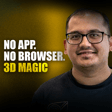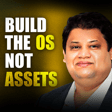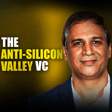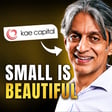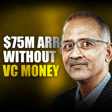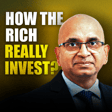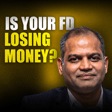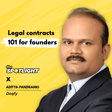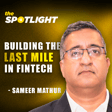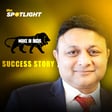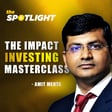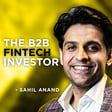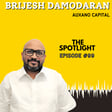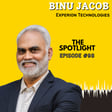
Zero to One in Deep Tech: Advice from Speciale Invest’s Vishesh Rajaram
How do deep tech VCs pick future-defining startups in India? In this episode, we uncover the journey of Vishesh Rajaram, Co-Founder and Managing Partner at Speciale Invest, a seed stage venture capital fund backing India’s most audacious deep tech entrepreneurs. From rockets to EVs to AI SaaS, this conversation dives into the mechanics of zero-to-one investing, portfolio discipline, and why deep tech is India’s next frontier.
Vishesh shares how personal experiences shaped his risk appetite, his decade-long apprenticeship at VentureEast, and the contrarian leap to start Speciale Invest with a focus on exponential rather than incremental innovation. He explains the philosophy behind investing in companies like Agnikul Cosmos, Ultraviolette, Seinler Robotics, and Rocketlane, and why early-stage VCs must operate like startups themselves. Hosted by Akshay Datt, this candid discussion is packed with lessons for founders, VCs, and startup enthusiasts navigating India’s evolving venture capital ecosystem.
- How Vishesh Rajaram built Speciale Invest into India’s deep tech VC
- Lessons from backing Agnikul Cosmos, Ultraviolette, Seinler and Rocketlane
- Secrets to portfolio construction and finding the 1 percent of investable startups
- Contrarian philosophy of exponential over incremental innovation
- The role of discipline, patience and risk appetite in venture capital
- Macro shifts driving India’s space, EV and AI startup ecosystem
Subscribe to the Founder Thesis Podcast
Follow us on LinkedIn (podm.in/ad) for exclusive content
Visit founderthesis.com for more founder stories
00:00 - Vishesh Rajaram journey into venture capital
05:20 - Founding story of Speciale Invest
13:10 - Portfolio construction and VC discipline explained
21:35 - Betting on India’s EV revolution with Ultraviolette
29:10 - Agnikul Cosmos and India’s space tech breakthrough
36:55 - Robotics, AI and exponential innovation bets
45:20 - Lessons from Rocketlane and SaaS investing
52:40 - Building a venture capital fund like a startup
59:30 - Advice to founders on when to raise VC
#VisheshRajaram #SpecialeInvest #DeepTechStartups #IndiaVentureCapital #AgnikulCosmos #Ultraviolette #Rocketlane #SeinlerRobotics #DeepTechVCIndia #SeedFundingIndia #SpaceTechIndia #EVStartupsIndia #AISaaSIndia #FounderThesis #AkshayDatt #StartupFundingIndia #ZeroToOneStartups #FutureOfDeepTech #IndiaStartupEcosystem
